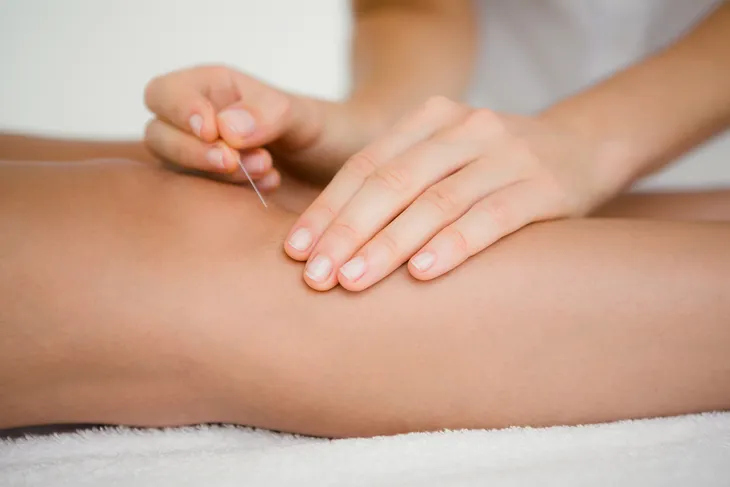One of the greatest misconceptions I had upon being diagnosed with lupus almost 20 years ago was that there was no magic pill that could cure the disease. I remember looking at the rheumatologist who had just diagnosed me and asking what medication is available to make this “go away.” While I was met with medication options, these options were only going to help me manage the disease. Even now, two decades later, no cure exists for lupus.
The reality is, medication will not take away every symptom lupus brings forth, and most patients struggle on a daily basis with symptoms like fatigue, fever, and pain. All of this makes even the simplest of tasks feel like climbing a mountain. I have tried countless alternative and complementary therapies and what I did find was that certain lifestyle changes could help me not only better manage my symptoms, but also improve my mental, emotional, and overall health.
As someone who knows the struggles of a lupus diagnosis and how hard it can be to manage on a daily basis, I’ve compiled my personal list of effective lifestyle tips for managing lupus. Check it out…
Start a Daily Journal
Over time, after being diagnosed with a chronic illness, you will likely recognize certain triggers that bring out a flurry of symptoms after exposure. Every patient is different with their own unique triggers, however some are almost universal when it comes to lupus. Stress, sunlight, and lack of sleep are among the most common.
I didn’t really understand my triggers until I became active in the art of journaling at the urging of my husband. I purchased a notebook and every day for quite some time, I would write out the following for each day: how much I slept, if I napped (if so, how long), what foods I ate, medicine I took, any supplements I used, what my symptoms were for the day, if a fever or pain was present, if my menstrual cycle was occurring, if I went in the sun or heat, and what stressors were in my life. Though it wasn’t natural at first, I eventually became aware of both good and bad stressors. For instance, my wedding was considered “eustress” or good stress – but stressful nonetheless, putting me in a terrible flare up.
Having this information over many years proved to be invaluable. I saw very specific trends and patterns that correlated with an increase in pain, fevers, rashes, and heart complications, plus overall flare ups. For me, the heat, sun, a bad night of sleep, stress, certain foods, and even crying revved my body up in a way that brought out a multitude of symptoms.
For this reason, I recommend anyone who is newly diagnosed or really trying to implement better lifestyle choices in their overall health plan to get a notebook and stay committed to journaling. Your body will tell you everything you want to know – it is just better to write it all down because it is impossible to remember everything!
Implement Destress Techniques
Stress is undoubtedly one of the major triggers for most people with lupus, and while I began to understand this fact, I still hadn’t figured out any ways to combat the stress I was experiencing. However, in the past two decades I started to discover some outlets that improved my mental state and decreased my stress levels. Lupus causes the body to go into overdrive, so it was really important for me to find things that could calm the nervous system.
Here are a few of my favorite solutions:
-
- Breathing and Meditation Apps: A 5- to 10-minute guided meditation or guided breathing exercise on apps like Calm or Headspace not only helps with anxiety, but also helps me wind down at night and get my body ready for sleep.
- Music Therapy: One of my staples to destress my body and mind, and disconnect with any thought of illness for a period of time. While I am a fan of slower, chill instrumentals — find what works for you and create a playlist on your favorite music streaming app. Dedicate 10- to 15-minutes a day to rest and connect with music while focusing on deep breathing.
- Embrace a Hobby: Drawing, painting, knitting, baking, writing, reading, or even singing and dancing. Personally, painting brings me calm and peace, lowering my stress level exponentially.
Find the Ideal Exercise for You
Exercise is a tricky topic for people with lupus and has been a struggle for me since day one. There were times when I was wheelchair bound or severely ill. In this case, I committed to bed or chair exercises I had found on YouTube or through my physical therapist. As I improved, I graduated to walking, yoga, and occasionally, swimming.
Pain and fatigue are often present in chronic illness, but not being physical can send us in a pattern and never ending cycle of even more pain and fatigue. The key is to find what works for your current disease activity and energy level. If you can only do 5-minutes of chair exercises, then that is perfectly fine! Do what you can. You may even surprise yourself as you start to notice you can do a little more each time.
Other Lifestyle Tips
There are many other lifestyle tips to try such as incorporating massage and acupuncture, working with a nutritionist or functional medicine doctor, and also more psychological-based tips such as working with a therapist, implementing boundaries and learning how to not overload your plate of responsibilities.
Have you found improvement with certain lifestyle tips and want to share them with our readers? We would love to hear about them – tell us more about your tips in the comment section!







